The 25 Most Influential Executives Of 2015
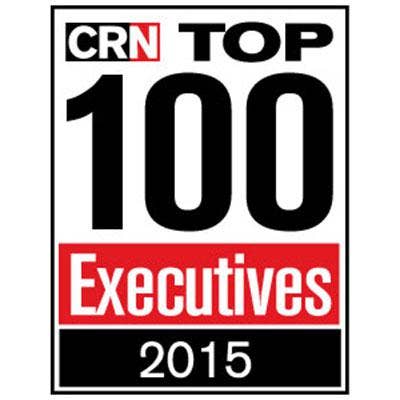
The Most Influential
This year's class of the top 25 most influential executives thrive in an era of speed-of-light disruptive technology changes, rising security threats, and activist investors.
There is a football fan inspired by the New York Giants' underdog Super Bowl victories, a former candidate for Governor of California who has reinvented one of the crown jewels of Silicon Valley, and a onetime channel chief leading the charge as a new CEO moving to transform a networking giant into a cloud, security and Internet of Things superstar.
Here is our list of the 25 most influential executives of 2015, the executives through their vision, passion and fire have set the agenda for the channel and for the industry.
Be sure to visit the complete list of CRN's Top 100 Executives Of 2015.

25. Dan Burns
CEO
Optiv Security (Accuvant FishNet)
Dan Burns has built the world's largest and most respected security solution provider in the world with a laserlike focus on delivering best-in-class technology solutions to shut down any and all threats. Under Burns' leadership, the security behemoth, already No. 26 on the 2015 CRN Solution Provider 500, expects to grow its sales and profits by 20 percent this year.
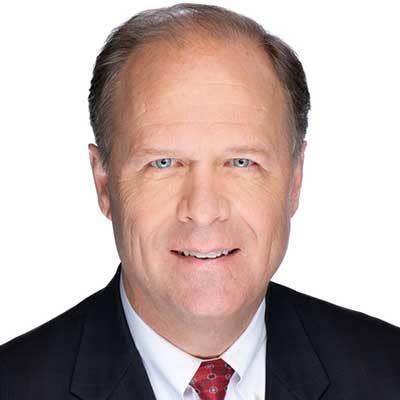
24. William Stemper
President
Comcast Business Services
A sales machine and fierce advocate for Comcast partners, William Stemper has consistently delivered astronomical sales growth for the business unit, taking it from $265 million in 2006 to $3.95 billion in 2014. And he has Comcast partnering with more solution providers than ever before with the four-year-old channel program now reaching more than 3,000 partners in the U.S.
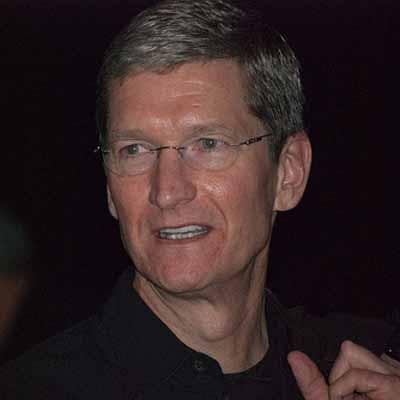
23. Tim Cook
CEO
Apple
All Tim Cook does is keep delivering one blockbuster quarter after another, taking smartphone sales to new heights and bringing the consumer products giant deeper and deeper into the enterprise. What can you say about a CEO that delivers the single biggest quarterly profit in history -- an unimaginable $18 billion in fiscal first quarter? Well, how about that he has made sure that the Midas touch is alive and well at Apple, four years after the passing of Steve Jobs.
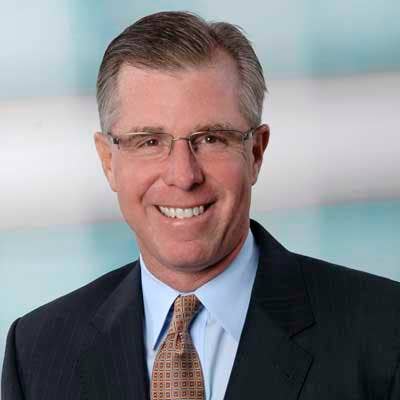
22. Thomas Richards
Chairman, CEO
CDW
The IT sales execution kingpin has consistently delivered higher sales growth than the overall U.S. IT market since taking the helm nearly four years ago. In 2014, Thomas Richards delivered 12 percent sales growth, bringing annual sales to $12.1 billion. One of the secrets to his success: a laser focus on customers that has led to investments like a dedicated team of cloud client executives and a new mobility apps marketplace. Look for CDW to continue to outpace the market under Richards' leadership.
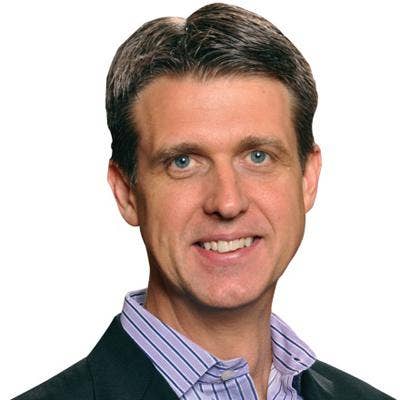
21. Mark Slaga
CEO
Dimension Data Americas
A 15-year Dimension Data veteran, Mark Slaga has raised the customer satisfaction bar in the Americas and has the unit firmly on track to deliver on the company's five-year goal to go from $1 billion to $3 billion in Americas revenue. Dimension Data's North American business grew at a robust 20 percent clip in the last fiscal year thanks to Slaga.
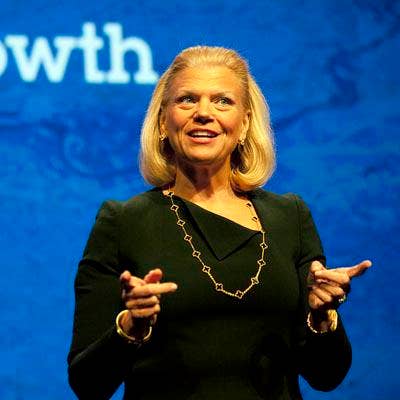
20. Ginni Rometty
Chairman, President, CEO
IBM
Ginni Rometty has laid the foundation for IBM sales growth with $4 billion in cloud, mobile and analytics investments that she promises will deliver $40 billion in annual revenue for those lines of business in 2018. Rometty told partners earlier this year that transformations are only clear when they are told in revisionist history. For our money, the transformation at IBM is already in view.
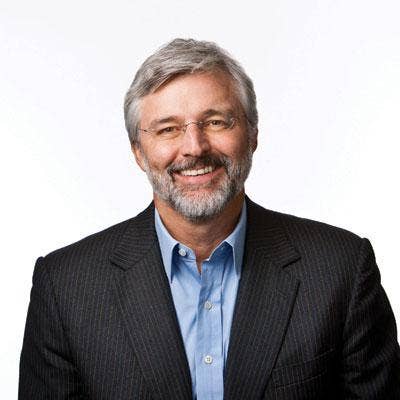
19. Zach Nelson
President, CEO
NetSuite
Zach Nelson is the undisputed and undefeated midmarket cloud computing king of the hill. No one has done more to deliver cloud computing to midsize businesses than Nelson. He's made mincemeat out of any and all competitors including Microsoft Dynamics, whose longtime channel chief joined NetSuite in June. Nelson's latest battleground -- integrating ecommerce with SuiteCommerce InStore into the robust NetSuite ERP platform.
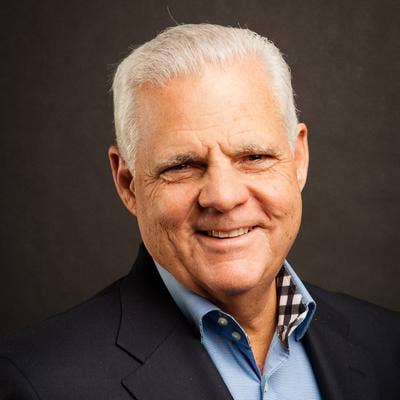
18. Joe Tucci
Chairman, CEO
EMC
His technology smarts and vision have given EMC what may well be the best technology hand in the IT business. Joe Tucci’s latest eye-popping acquisition -- the $1.2 billion purchase of enterprise cloud superstar Virtustream. Forget the "Star Trek" references to the Federation – EMC’s is the real Federation – bringing together all the groundbreaking technology Tucci has put into the EMC basket since taking the helm 14 years ago.
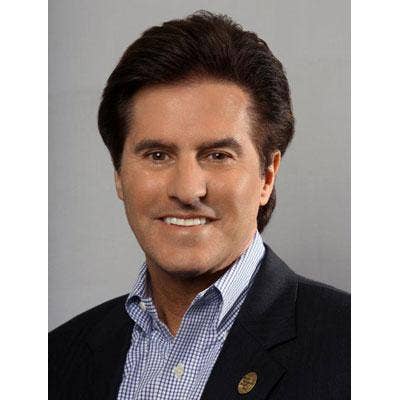
17. Christopher Formant
Senior Vice President, Global President, Enterprise Solutions
Verizon
A 22-year industry veteran with stints at PwC, Internet consulting company Scient/iXL, BearingPoint and Avaya, Christopher Formant has put Verizon on the channel fast track. His biggest breakthrough: a Preferred Renewal Program that has opened up Verizon's once largely inaccessible enterprise accounts to partners. Look for Formant and his channel team to open up even more avenues for partner growth.

16. Larry Page
CEO
No CEO has consistently delivered more leading-edge technology in as many diverse markets as Larry Page. Among the latest breakthroughs: Project Vault, a computer the size of a Micro SD card that handles security functions for smartphones; and Project Brillo, Google's operating system for the Internet of Things. If that is not enough, the onetime Google boy wonder has remade himself into a steady-handed big-company CEO more than capable of running a $66 billion company.
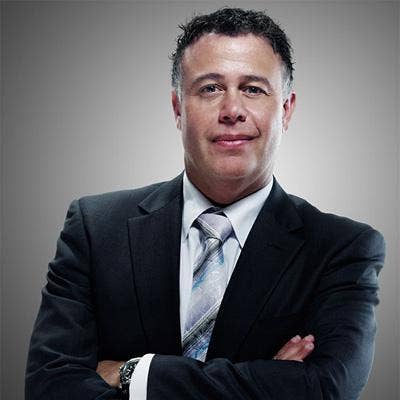
15. Dion Weisler
Enterprise Vice President
Hewlett-Packard
Dion Weisler is preparing to take HP Inc. into innovation overdrive with HP's Sprout immersive computer -- a full-fledged reinvention of the two-dimensional PC experience into a 3-D workspace. His next big breakthrough: an HP 3-D printer – set to be introduced next year – that is slated to deliver 10 times faster 3-D printing speeds to the market at breakthrough economics. No wonder HP CEO Meg Whitman handpicked Weisler as the CEO of the HP Inc. spinoff.
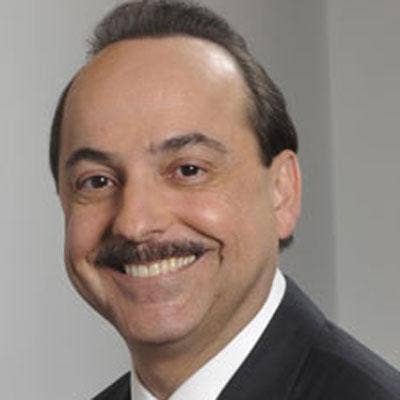
14. Ralph de la Vega
President, CEO, Mobile Business Solutions
AT&T
Ralph de la Vega has taken AT&T's partnering efforts to new heights with a top-notch channel program. The company's latest partner coup: a new certification achievement program -- the first ever offered to members of the AT&T Partner Exchange -- that is already driving big recurring revenue gains. Special shout out to de la Vega for inspiring others with his rise from Cuban immigrant to Business Hall of Fame inductee, chronicled in his autobiography "Obstacles Welcome."
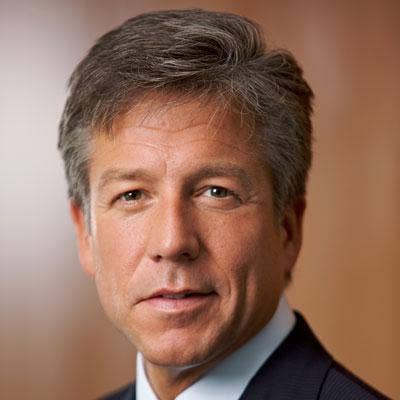
13. Bill McDermott
CEO
SAP
Give Bill McDermott credit for taking the powerful on-premise SAP ERP and CRM product set into the cloud era with a channel transformation that is the envy of the industry. SAP's cloud subscription sales and services grew 59 percent in 2014 to more than $2 billion. Look for McDermott to drive even greater cloud sales growth in 2015 with a revamped PartnerEdge 2.0 program that features products sold exclusively through the channel.
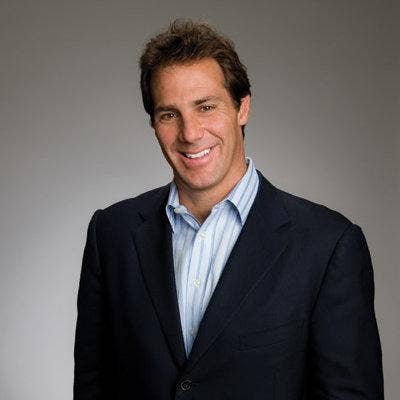
12. Dave DeWalt
CEO
FireEye
Dave DeWalt's technology savvy and business bravado has made FireEye one of the fastest-growing security companies in a market that keeps soaring to dizzying heights. DeWalt's leadership drove a whopping 163 percent sales growth in 2014 to $425.7 million. With new endpoint technology and cloud-based threat analytics, look for FireEye to continue to burn up competitors.
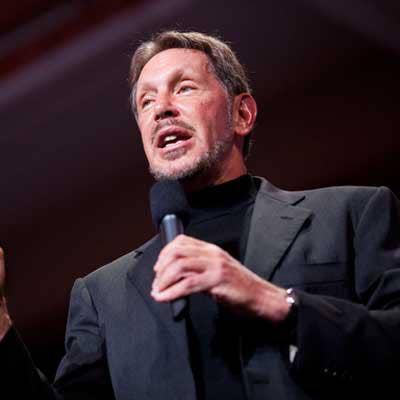
11. Larry Ellison
Executive Chairman, CTO
Oracle
Yes, Marc Benioff, that is Larry Ellison taking Oracle into the cloud computing stratosphere. Ellison boasts that Oracle's cloud business is growing faster than Salesforce.com’s and that even Salesforce.com and enterprise software heavyweight SAP pay Oracle for cloud software. Just when you thought you could count him out, Ellison is pulling Oracle with all his business brawn and technology smarts into the cloud era.
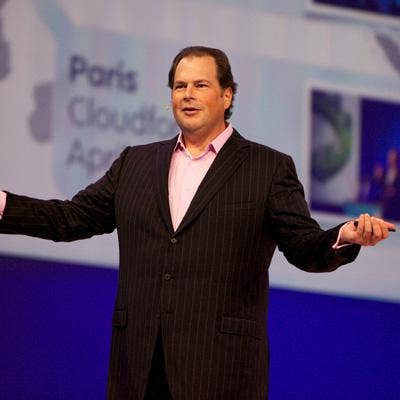
10. Marc Benioff
Chairman, CEO
Salesforce.com
Is Marc Benioff interested in selling Salesforce.com? Microsoft was reportedly willing to pay $55 billion. But it wasn't enough for Benioff, who continues to drive big enterprise sales growth long after he took the title of cloud computing champion. Under Benioff's leadership, Salesforce.com became the fastest enterprise software maker to hit a $6 billion run rate. Salesforce.com is far more than a CRM company now with full-fledged marketing, services, community and analytics offerings. Besides, anyone who knows Benioff knows his ambition is to destroy -- not to partner -- with legacy software makers like Microsoft and Oracle.
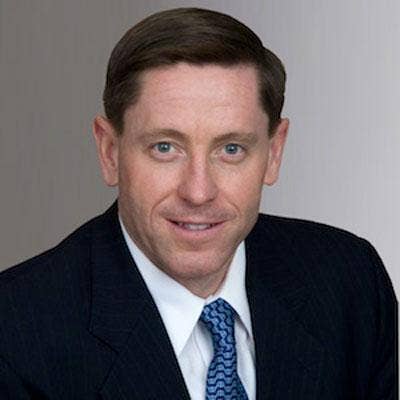
9. Mark McLaughlin
Chairman, President, CEO
Palo Alto Networks
Mark McLaughlin is one of the most underrated CEOs in the business. The level-headed software subscription sales champion -- teaming with security whiz kid Nir Zuk -- has kept Palo Alto Networks on track, delivering 50 percent sales growth rates quarter after quarter. McLaughlin's real genius may well be his ability to keep the company executing even as the sales numbers get bigger and bigger and the security threats get more severe.

8. Pat Gelsinger
CEO
VMware
Pat Gelsinger has done the impossible: coming up with a second act for VMware, which reshaped the entire enterprise computing landscape with its virtualization software. Now, thanks to Gelsinger, VMware is making its mark in the software-defined data center of the future, hybrid cloud management, hyper-converged infrastructure, identity management and mobile device management.

7. Yang Yuanqing
Chairman, CEO
Lenovo
Yang Yuanqing's blockbuster bid to propel Lenovo into the future with the acquisition of IBM's server business and the Motorola smartphone business last year is starting to pay off. The new Lenovo had a coming out party of sorts at its inaugural Tech World in May with new servers, smartphones, wearables, cloud services, software and, yes, even PCs. Look for the Lenovo product bonanza to pick up even more steam in 2016. Credit his view that those who do not transform will become losers in the cloud era for the Lenovo renaissance.
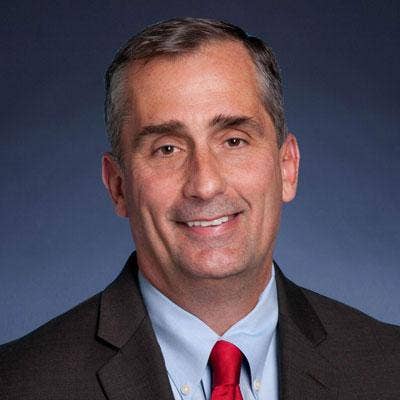
6. Brian Krzanich
CEO
Intel
Two years after taking the helm, Brian Krzanich has Intel's innovation engine firing on all cylinders. The PC processor kingpin is now an Internet of Things leader, a data center computing power for the ages and an up-and-comer in the smartphone market. At the same time, he has made PCs and tablets more relevant and compelling with new Intel technology. Give the 33-year Intel veteran kudos for managing to power the company into a new era, while keeping the heart and soul that has made Intel one of the most admired companies in the world.
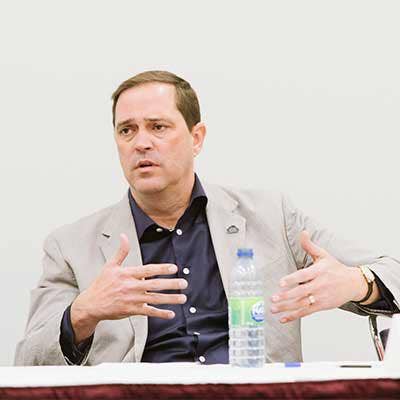
5. Chuck Robbins
CEO
Cisco Systems
If you wanted proof this is not your father's Cisco look no further than the sweeping changes that have taken place at the networking market leader in the two months since Chuck Robbins was named CEO leading up to his coronation July 26. The old guard is gone. And Robbins and his new leadership team are focused on transforming a hardware-centric behemoth into a fleet and nimble cloud computing, software and security power for the Internet of Things era. Recent acquisitions like security software maker OpenDNS and cloud software renewal maker MaintenanceNet are signs of the Robbins times.
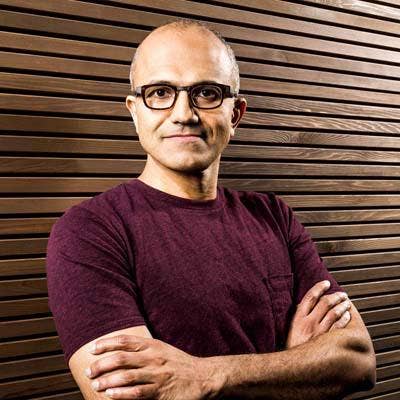
4. Satya Nadella
CEO
Microsoft
Give Bill Gates and the Microsoft board of directors a ton of credit for choosing Satya Nadella to lead the company. He has taken a Microsoft that was badly off course and set it straight. Nadella's mobile, cloud-first mantra is seeping its way into every nook and cranny of the company. And now a company that was playing defense is playing offense -- making life miserable for Microsoft competitors -- for the first time in many, many years.
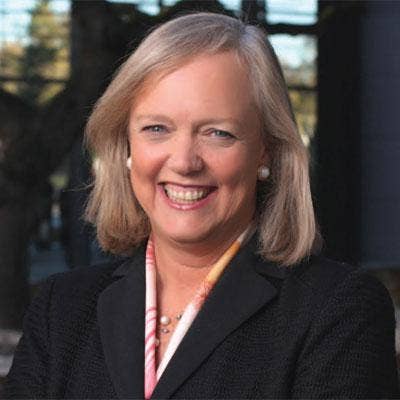
3. Meg Whitman
Chairman, President, CEO
Hewlett-Packard
Talk about being spot on. Meg Whitman's five-year plan to save Hewlett-Packard has gone off like clockwork. Splitting HP into two independent Fortune 50 companies is the piece de' resistance of her plan to save one of the great American companies of all time. Yes, HP matters again and it's because of the sheer force of Whitman's will and leadership. The board's decision to give her the non-executive chairman role at HP Inc. and the CEO role at Hewlett Packard Enterprise may well be the difference between success and failure in the final phase of the HP turnaround.
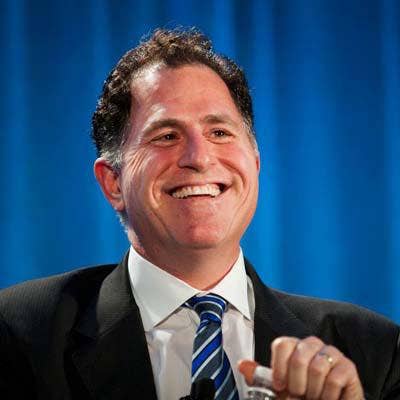
2. Michael Dell
Chairman, CEO
Dell
Nearly two years after taking Dell private, Michael Dell's radical entrepreneurial experiment is an unqualified success. As a result, what Michael Dell calls the biggest startup ever is much further along in reinventing itself for the 21st century than competitors struggling to make the transition under the glare of the public markets. One of the visionaries that lit the PC fire, Dell is well on his way to refashioning the company he founded 31 years ago into an enterprise computing power.
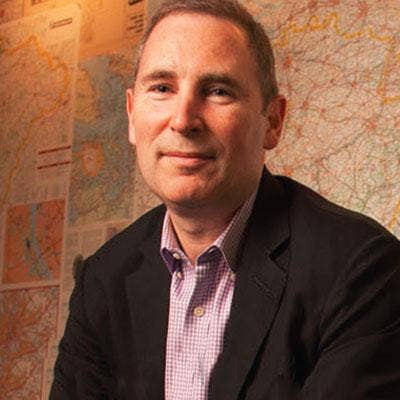
1, Andy Jassy
Senior Vice President
Amazon Web Services
Amazon has built its entire business around the idea of moving quickly. Andy Jassy, senior vice president of Amazon Web Services, has taken this philosophy to a whole new level.
Jassy, who founded Amazon Web Services (AWS) in 2003 with a team of 57 people, has built a $6 billion-plus run-rate business with more than 1 million customers in 190 countries in less than a decade. That’s even more impressive considering that Amazon itself was only a $5.26 billion business after nine years.
So just how fast is Jassy reshaping the computing landscape? Salesforce.com, often characterized as a cloud computing pioneer, took 16 years to reach the $6 billion run-rate mark. Deutsche Bank estimates that AWS is nearly 10 times the size of Microsoft Azure, its closest competitor, which launched five years ago.
AWS was an underdog in the computing space when it launched a platform of compute, storage, database and application services in 2006 that customers could rent by the hour and access over the Internet. Legacy enterprise vendors had long talked about delivering these kinds of services, but AWS, under Jassy's leadership, beat them all to the punch.
AWS generated $1.57 billion in sales and $265 million in profit in its fiscal first quarter -- the first in which Amazon broke out results for the unit. It then followed up with an even better performance in its fiscal second quarter, with revenue growing 81 percent year over year to $1.82 billion, and profit of $391 million compared with $77 million in last year’s quarter.
Some enterprise vendors, like IBM and VMware, have tried to dissuade their partners from working with AWS. But Jassy told CRN it’s time for solution providers -- some of whom have found it difficult to align with AWS -- to get on board. Given AWS' momentum in the marketplace, that's a tough point to argue.
Read CRN's complete profile on this year's most influential executive.